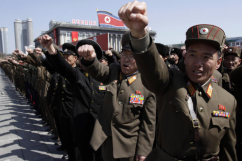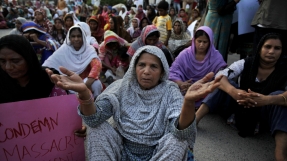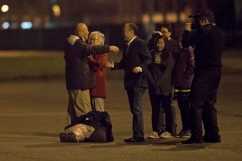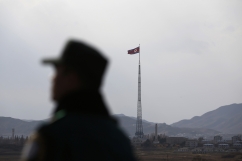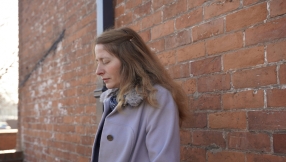A huge steel "Christmas tree" near the border between North and South Korea is causing division between Christian groups.
Built in 1971, the 98-foot structure was last month torn down amid safety concerns. It has long been a subject of contention between the two countries, with North Korean media describing it as "a means for psychological warfare against the DPRK".
It is a "symbol of frantic anti-North confrontation rackets for escalating tensions between the north and the south," state media said on Sunday.
In the past, North Korea has accused the South of proselytising through the tower, which was set up by Christian groups and at times carried a giant cross on top. Some years, the tree was not lit up in an effort to ease relations.
Now, the Christian Council of Korea and a coalition of over 250 other groups have proposed a plan to rebuild the structure.
It is "nothing more or less than a symbol of peace and love on the Korean Peninsula," a representative told a press conference in Seoul.
"The tower embodies a message not specific to a religion but to all mankind so it can't possibly be a source of animosity between the two Koreas."
According to the Guardian, however, progressive Christian group the National Clergy Conference for Justice and Peace are contesting the tower being rebuilt, believing that it does symbolise increased tensions between the neighbouring countries.
The two have technically been at war since the 1950, after the Korean War ended with an armistice in 1953 as opposed to a peace treaty.
Gunfire was exchanged between the North and South in October amid escalating tensions.
Yesterday, the UN General Assembly voted to recommend that the Security Council refer North Korea to the International Criminal Court (ICC).
The UN's Commission of Inquiry found that "unspeakable atrocities" are perpetrated against citizens, and that "the gravity, scale and nature of these violations reveal a State that does not have any parallel in the contemporary world."
The Security Council will now be expected to hold North Korea accountable for its crimes.











